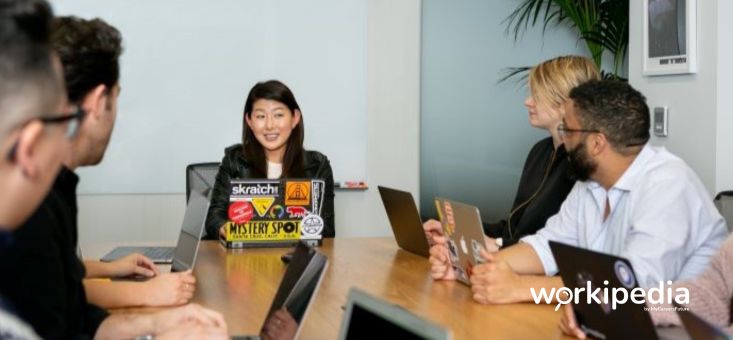In a fast-paced and ever-changing business environment, the success of an organisation often hinges on the strength of its leadership. Effective leaders possess a unique set of skills and qualities that enable them to guide teams towards success, drive innovation, and foster a culture of engagement and accountability. However, finding these exceptional leaders can be a challenging task, especially with the myriad of factors and variables that come into play during the hiring process.
To mitigate the risks and identify the right leaders for your organisation, it is essential to have a well-thought-out interview process that goes beyond the basics of evaluating technical skills and experience. A successful leadership interview should provide a holistic view of the candidate’s personality, values, leadership style, problem-solving abilities, and cultural fit. It should also assess their emotional intelligence, communication skills, and adaptability — traits that are becoming increasingly important in today’s complex and dynamic work environments.
In this article, we’ll dive deep into the world of leadership interviews and explore the essential interview questions that can help you identify the right leaders for your organisation. We’ll discuss why these questions are important, what they reveal about the candidates, and how you can use them to make informed hiring decisions.
Whether you’re an experienced HR professional or a hiring manager looking to build a strong leadership team, this guide will provide you with the tools and insights you need to find the best leaders for your organisation. So, let’s get started on this journey of identifying the most critical interview questions for leadership roles.
Leadership qualities
Leadership is a crucial aspect of any successful organisation. In essence, it is the ability to inspire and influence people to work towards a common goal. However, there is much more to leadership than just charisma and influence. It requires a diverse set of qualities, such as strong communication skills, strategic thinking, empathy, and the ability to make effective decisions.
Excellent communication skills are necessary for a leader to communicate their vision clearly, inspire their team and build a shared understanding. Leaders need to have strategic thinking to set specific and attainable goals for their teams while ensuring alignment with the organisation’s broader mission. Empathy is also crucial as it enables leaders to understand and respond to the needs of employees, customers, and key stakeholders.
Finally, the ability to make informed, ethical, and timely decisions is vital for success as a leader. In short, leadership is about balancing different qualities and skills to create a positive impact on those around you.
General interview questions
Leadership is a critical aspect of any successful organisation, and hiring the right leaders is crucial for growth, innovation, and progress. While a candidate’s resume and qualifications provide some insight into their capabilities, it is essential to assess their leadership potential through targeted interview questions.
Here are some general leadership interview questions and their purpose to help you evaluate the suitability of candidates for leadership positions:
1. Can you describe your leadership style?
This question seeks to understand a candidate’s approach to leadership, whether it is more directive, participative, transformational, or empowering. The answer provides insight into the candidate’s leadership philosophy and their ability to adapt to different situations.
2. What do you believe are the most important qualities of a good leader?
Knowing the essential qualities of a leader helps separate the competent from the exceptional. This question can reveal the candidate’s understanding of leadership principles that are important to your organisation.
3. Give an example of a time when you had to make a tough decision as a leader. How did you handle it?
Leaders must make tough decisions that can impact everyone on their team. This behavioural question examines the candidate’s decision-making abilities under pressure and how they handle challenging situations.
4. How do you motivate and inspire your team?
Motivation is essential for the productivity and performance of a team. This question evaluates the candidate’s methods for keeping their team members engaged and focused.
5. Describe a situation in which you had to lead a team through a period of change or uncertainty. What was your approach?
Change is an inevitable part of business, and leaders must be able to manage transitions effectively while maintaining team morale. This question assesses the candidate’s change management and adaptability skills.
6. What strategies do you use to handle conflicts within your team?
Conflict is common in any team, and leaders must manage interpersonal issues impartially and effectively. This question assesses a candidate’s conflict resolution and communication skills.
7. Tell us about a time when you successfully delegated tasks or responsibilities. How did it benefit the team and the organisation?
Delegating tasks is a key component of leadership, as it helps distribute responsibilities and build team members’ skills. This question evaluates the candidate’s delegation skills and how they use delegation to benefit the team and the organisation.
8. How do you set and communicate goals for your team or department?
Setting objectives and communicating expectations is vital for clarity, accountability, and success. This question assesses a candidate’s ability to define goals and communicate them effectively to the team.
9. What steps do you take to foster a collaborative and inclusive team environment?
Creating a collaborative and inclusive work culture is necessary for team harmony, innovation, and productivity. This question evaluates a candidate’s commitment to diversity and teamwork.
10. How do you handle team members who are not meeting expectations or underperforming?
Managing underperforming employees is a challenging but necessary task for leaders. This question assesses the candidate’s approach to performance management and how they balance accountability with emotional intelligence.
Leadership interview questions should be tailored to suit your organisation’s priorities and values. By asking focused questions that target specific leadership competencies, you can better evaluate a candidate’s leadership potential and cultural fit.
Behavioural interview questions

Behavioural interviews are an integral part of the hiring process for organisations that are looking to hire top-quality leaders. Unlike traditional interviews that focus on a candidate’s qualifications and technical skills, behavioural interviews assess a range of soft skills, such as leadership, problem-solving, and communication. This assessment is carried out using behavioural leadership interview questions, which aim to evaluate a candidate’s past behaviour in various real-world scenarios.
There are several advantages of conducting behavioural interviews for hiring leaders. Firstly, it is an effective tool for predicting future behaviour based on past experiences. Candidates tend to repeat similar behaviour patterns in different situations, and this can give interviewers a good indication of how the candidate would perform in their new role.
Secondly, behavioural interviews also provide valuable insights into a candidate’s soft skills, such as their ability to communicate, resolve conflicts, and work collaboratively. These soft skills are critical for successful leadership, and evaluating these skills can help organisations hire leaders who can drive their business forward.
Here are some of the most common behavioural leadership interview questions and their purposes:
1. Give an example of a time when you had to lead a team through a challenging project. What strategies did you use, and what was the outcome?
This question aims to assess a candidate’s ability to lead teams effectively towards achieving a common goal. The interviewer wants to understand the candidate’s leadership style, problem-solving skills, and ability to manage the team’s workload, resources, and timelines.
2. Tell me about a situation in which you had to resolve a conflict between two team members. How did you approach it, and what was the result?
This question evaluates a candidate’s conflict resolution skills and interpersonal effectiveness. The interviewer wants to understand how the candidate deals with conflicts within the team and how they maintain team dynamics and morale while resolving the conflict.
3. Describe a time when you had to make a tough decision that was not popular with your team. How did you communicate and implement it?
This question assesses a candidate’s decision-making ability and leadership in difficult situations. The interviewer wants to understand whether the candidate can make tough decisions, communicate them effectively to the team, and implement them in a way that maintains team motivation and productivity.
4. Share an example of a time when you had to take over a struggling team or project. What steps did you take to turn it around, and what were the results?
This question evaluates a candidate’s ability to improve team performance and achieve results. The interviewer wants to understand how the candidate approached the situation, identified the underlying issues, and implemented strategies to turn the team or project around.
5. Can you provide an instance when you had to adapt your leadership style to work effectively with a team member or colleague with a different communication or working style?
This question evaluates a candidate’s adaptability and interpersonal skills. The interviewer wants to understand whether the candidate can adjust their leadership style to accommodate team members with different communication, working styles or personalities, and how they maintain team cohesion and productivity in such situations.
6. Tell us about a time when you set ambitious goals for your team. How did you ensure they were motivated and focused on achieving those goals?
This question assesses a candidate’s goal-setting and motivational abilities. The interviewer wants to understand whether the candidate can set SMART goals for the team, communicate them effectively, and inspire the team to achieve those goals.
7. Share a situation in which you received feedback or criticism from a team member or supervisor. How did you respond, and what changes did you make as a result?
This question evaluates a candidate’s ability to handle feedback and make improvements. The interviewer wants to understand whether the candidate can take constructive feedback positively, identify areas for improvement, and implement changes to address the feedback.
8. Describe an instance when you had to prioritise competing tasks or projects for your team. How did you decide what to focus on, and how did it impact the team’s performance?
This question evaluates a candidate’s prioritisation and time management skills. The interviewer wants to understand whether the candidate can balance competing priorities, delegate tasks effectively, maintain team productivity and focus on the critical tasks.
9. Tell me about a time when you successfully mentored or developed a team member’s skills and career. What approach did you take, and what were the outcomes?
Candidates can showcase their commitment to team development and mentorship with this question. The interviewer wants to understand whether the candidate can identify team member’s development goals, provide guidance and support to help them achieve those goals, and how it contributes to the team’s overall performance.
10. Share an example of a time when you had to lead a team during a crisis or emergency situation. How did you handle it, and what were the results?
This question assesses a candidate’s crisis management and leadership under pressure. The interviewer wants to understand whether the candidate can lead the team calmly and effectively, make quick decisions, and communicate effectively with stakeholders to mitigate the crisis’s impact.
Effective leadership is essential for the success of any organisation. To identify the right leaders for your organisation and ensure they have the expertise to perform well in a senior role, it’s important to ask both general and behavioural questions during the interview process. By focusing on key leadership qualities and considering how candidates live up to these standards — you’ll be able to find the right people who will help move your business forward.
Don’t forget that by investing in high-quality training and development opportunities, you are creating a culture that promotes strong leaders throughout your organisation. So if you want to guarantee solid employee performance and workplace harmony at every level of your business, make sure to review these important leadership qualities and ask the necessary interview questions today.














